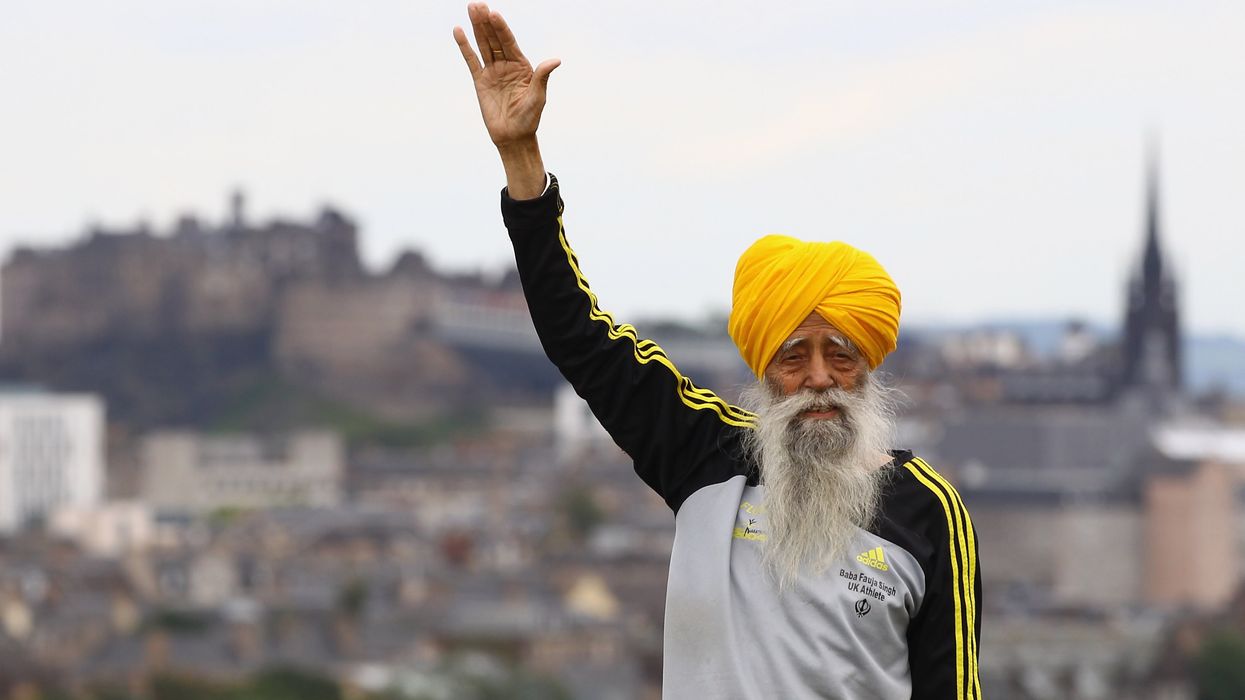By Nadeem Badshah
HEALTH chiefs have been urged to relax the rules for dentists from overseas who want to work in the UK to tackle the staffing crisis.
Some practises are not accepting new NHS patients due to growing waiting lists - forcing some to pull their teeth out themselves with pliers.
The Association of Indian Dentists UK (AID) has called for more sittings of the Overseas Registration Exam. It said there are currently only two a year and just 100 places available.
The pass rate is around 10 per cent for the two-part test which involves a written exam and clinical assessment.
The AID has also recommended overseas exam centres for dentists who want to work in the UK and leniency over paperwork so those who have passed the exams can start working sooner.
Dr Roshith Valiyamannil, president of the AID, told Eastern Eye: "The shortage of dentists in the UK is so rampant that patients trying to take their own teeth out with pliers.
"My Dentist, who are one of the biggest dental corporates in Europe, had to close down several practices around the country due to lack of dentists.
"The situation is getting worse and had kept patients waiting to get basic dental treatments.
"There are lots of foreign dentists who are ready and willing to work in the UK. The current situation is not helping them to start working as a dentist in the UK."
In September it emerged that patients in Penzance, Cornwall, are waiting up to 12 months for an NHS appointment for their teeth. Shortages have also arisen in County Durham, Nottinghamshire and North East Essex
The number of new dentists working in the UK fell from 2,571 in 2015 to 1,999 last year, a drop of more than 22 per cent, with cutbacks in training places and falling salaries deterring new recruits.
Figures also showed four per cent of practices offering exclusively NHS treatments - a drop from 15 per cent in just three years. The percentage only taking private cases has gone from 15 to 18 per cent.
Professor Mahendra Patel is a senior member of the South Asian Health Foundation and associate member of the British Association of Physicians of Indian Origin.
He called for more support for dentists from abroad due to cultural issues, language barriers and their knowledge of the healthcare system.
Professor Mahendra Patel
Professor Patel told Eastern Eye: "Have we got the [resources] to provide the necessary training?
"There are migration issues, leaving home, having no friends here, it becomes isolating and is not an easy jump.
"Structured mentoring programmes are needed to follow these people and give them the support - have we got the appropriate mentors in place?
"Patients are fighting for places in the NHS. The training budget is important, is the training of a high enough level to reach the competency of programmes to bring in a competent and capable workforce.
"We have to tailor support to their needs. It is a 12-24 month process whether you pass the exams, how much feedback do you get if you don't make the hurdle?"
Meanwhile, the leader for the dental profession in Scotland warned in December that professionals are being caught out by "unfit for purpose" fee regulations.
David McColl, chair of the British Dental Association’s Scottish Dental Practice Committee, said: “Dental treatment payments, and the regulations that underpin them, remains unfit for purpose. They are difficult to administer and seems set up to allow practitioners to fail."
In Ireland, the government has been slammed for failing to make provision for the ongoing post-graduate education and training of dentists and the proposed network of advanced oral healthcare centres require specialists.
The Royal College of Surgeons in Ireland said the system is unprepared for plans to introduce free dental care for under-6s due to a shortage of staff.
Dr Richard Marques, a dentist in Harley Street, London, said it is extremely important for the NHS to be able to hire more foreign qualified dentists.
He added: "With an ever growing and ageing population in the UK there has never been a time when we require more NHS dentists.
"A lot of highly qualified UK dentists become specialists, work in hospitals or perform private dentistry.
"Additionally some UK trained dentists leave the profession or even the country for various reasons.
Hiring foreign dentists for the NHS and allowing them in to the country to work is vitally important to keep up with the NHS dentistry demands of the UK population.”
The British Dental Association (BDA) said it is concerned about the random process to register for a place to sit the two parts of the Overseas Registration Exam.
Applicants for either part A or B of the exam are given a date and time when applications are open and the demand is such that places are gone in a short space of time.
A BDA spokeswoman said: "Whether you are allocated a place is simply down to luck, and it’s irrelevant how many times you have applied in the past.
"We also know of candidates who have tried on several occasions but still haven’t got a place despite trying at the right time."
She added: "The British Dental Association agrees that some of the systems for the registration exams, especially the allocation of places, are not appropriate and have asked the GDC for improvements.
"The NHS’ much criticised dental contract also needs fixing to address the problem of shortages; this is not addressed by simply recruiting more dentists from overseas as the problems of the system will affect them too once they are registered."
















